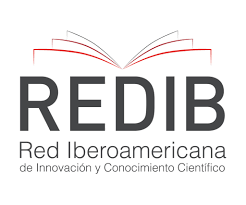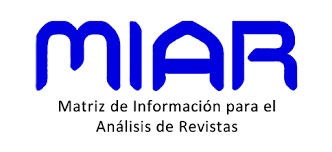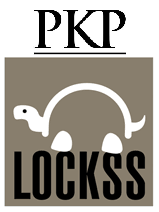The Role of the Christian Worldview in the Origin and the Preservation of the Scientific Knowledge
DOI:
https://doi.org/10.51743/cpe.391Keywords:
faith, power, reason, scienceAbstract
When some scientists claim an atheistic vision, they actually harm science more than faith. Modern science could only be born in a worldview shaped by the biblical God. The framework of Creation and the fact of the Resurrection made the development of the scientific method possible. For this reason, when science is uprooted from the environment that made it flourish, in fact it becomes more fragile. Science without God runs the risk of being subjected to the arbitrariness of power. Hence faith and reason need each other today more than ever.
Downloads
Global Statistics ℹ️
|
705
Views
|
528
Downloads
|
|
1233
Total
|
|
References
Aristóteles (1998). Metafísica. Gredos.
Cantalamessa, R. (2011, 10ª ed.). La fuerza de la cruz. Monte Carmelo.
Chesterton, G. K. (2006). El hombre eterno. Cristiandad.
Comellas, J. L. (2007). Historia sencilla de la ciencia. Rialp.
Conesa, F. (2011). El nuevo ateísmo: exposición y análisis. Scripta Theologica, 43, pp. 547-592. DOI: https://doi.org/10.15581/006.43.3189
Dostoievski, F. M. (2005). Los hermanos Karamázov. Cátedra.
Ecklund, E. H., Johnson, D. R., Vaidyanathan, B., Matthews, K. R. W., Lewis, S. W., Thomson, R. A. y Di, D. (2019). Secularity and Science: What Scientists Around the World Really Think About Religion. Oxford University Press. DOI: https://doi.org/10.1093/oso/9780190926755.001.0001
Foucault, M. (1979). La arqueología del saber. Siglo XXI editores.
Foucault, M. (1987). El orden del discurso. Tusquets Editores.
Fundació Ferrer i Guàrdia. (2023). Laicidad en cifras. Análisis 2023. https://www.ferrerguardia.org/blog/publicaciones-3/laicidad-en-cifras-2023-108
Gilson, E. (2014). La filosofía en la Edad Media. Desde los orígenes patrísticos hasta el fin del siglo XVI. Gredos.
Haught, J. F. (2013). Science and Faith: A New Introduction. Paulist Press.
Jaeger, W. (1946). Aristóteles. Bases para la historia de su desarrollo intelectual. Fondo de Cultura Económica.
Jaki, S. L. (1990). Science and Creation. From Eternal Cycles to an Oscillating Universe. University Press of America.
Kreeft, P. (2010, 3ª ed.). Socratic Logic: A Logic Text using Socratic Method, Platonic Questions, and Aristotelian Principles. St. Augustine Press.
Lennox, J. (2019). Can Science Explain Everything? The Good Book Company.
Newman, J. H. (1986). The Idea of a University. Notre Dame Press.
Orwell, G. (2010). 1984. Destino.
Pew Research Center. (2019). In U.S., Decline of Christianity Continues at Rapid Pace. An update on America’s changing religious landscape. https://www.pewresearch.org/religion/2019/10/17/in-u-s-decline-of-christianity-continues-at-rapid-pace/
Ratzinger, J. (1991). Una mirada a Europa. Rialp.
Ratzinger, J. (1992). Creación y pecado. Ediciones Universidad de Navarra.
Ratzinger, J. (2005). Fe, Verdad y Tolerancia. El cristianismo y las religiones del mundo. Ediciones Sígueme.
Ratzinger, J. (2006). Dialéctica de la secularización. Sobre la razón y la religión. Encuentro.
Ratzinger, J. (2013). Introducción al cristianismo. Lecciones sobre el credo apostólico. Ediciones Sígueme.
Sagrada Biblia. (2009). Ediciones Universidad de Navarra.
Solzhenitsyn, A. (1978). A World Split Apart. Solzhenitsyn’s Commencement Address at Harvard University, June 8, 1978. The Aleksandr Solzhenitsyn Centre. https://www.solzhenitsyncenter.org/a-world-split-apart
United States Conference of Catholic Bishops (2020). Outreach to the Unaffiliated. https://www.usccb.org/resources/Discussion Guide--Outreach to Unaffiliated.pdf
Downloads
Published
How to Cite
Issue
Section
License
The author reserves the rights (copyright) of the published works, and the journal encourages and allows their reuse, from the preprint. The works are published in the electronic edition of the journal under a license "Creative Commons Attribution / Attribution-NonCommercial 4.0 International Public License - CC BY-NC 4.0", and can be copied, used, disseminated, transmitted and publicly exhibited.
The author / s partially transfer the property rights (copyright) of this work for the printed and online editions, provided that:
- The authorship and original source of its publication (magazine, publisher and URL of the work) is cited.
- Are not used for commercial purposes.
- The existence and specifications of this user license are mentioned.
It also declares to have respected the ethical principles of research and to be free from any conflict of interest.
"C.P.E." encourages the authors and the scientific community to the maximum promotion and dissemination of the works in their final version through:
1) Your list of contacts (emails) and social networks (Facebook, Twitter, LinkedIn ...).
2) Institutional repository of your University and public repositories (Mendeley, Cosis ...).
3) Scientific social networks (ResearchGate, Academia.edu, Kudos ...).
4) Personal or institutional website, blog, etc.
5) Google Scholar, ORCID, ResearchID, ScopusID, Dimensions, PlumX ...
6) Printed copies purchased directly and sent to specialists for reading and subsequent citation if appropriate.




















1.png)
1.png)

1.png)





.png)
.png)

.png)
1.png)
1.png)
